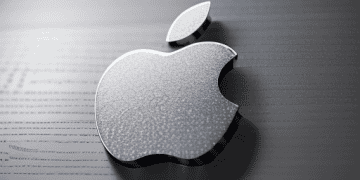A UK court has ruled that a legal dispute between the UK government and Apple over data privacy must not be held in secret, siding with a coalition of civil liberties groups and media organizations, including the BBC.
The case revolves around the Home Office’s request for access to data protected by Apple’s Advanced Data Protection (ADP) system, which is designed to provide enhanced security for iPhone users. The UK government, citing powers under the Investigatory Powers Act, seeks the ability to access such encrypted data, a capability Apple currently does not provide. Apple has expressed concerns that creating a “backdoor” to this system could lead to vulnerabilities exploited by hackers.
This request from the government has faced significant criticism from privacy advocates and some politicians in the US. In response, Apple removed ADP from the UK in February and initiated legal proceedings against the government in March. The case is currently being heard by the Investigatory Powers Tribunal.
The government had argued that keeping the details of the case private was essential for national security, claiming that disclosure could damage public safety. However, in a ruling issued on Monday, the tribunal rejected this argument. It emphasized the importance of open justice and stated that revealing the basic details of the case would not harm national security.
“The idea of conducting a hearing entirely in secret without public awareness of its occurrence would be extraordinary,” the tribunal noted in its judgment.
The Home Office, in a statement, refrained from commenting on the specifics of the case, but reiterated its commitment to ensuring public safety. It stressed that requests for access to ADP-protected data would require court approval and judicial oversight.
The ruling has been welcomed by civil rights organizations, who argued that the case has broader implications for privacy and security, not just in the UK but globally. Jim Killock, Executive Director of the Open Rights Group, noted that the tribunal’s decision would have international consequences for the privacy of millions of people.
“This is bigger than the UK and Apple,” Killock stated.
The decision also received praise from Big Brother Watch and Index on Censorship, organizations that had campaigned against the government’s request to hold the hearing in private.
Apple, which has consistently opposed government requests for backdoor access to its encrypted systems, has declined to comment on the latest ruling. In previous statements, the company reiterated its commitment to protecting user privacy and security.
ADP is an opt-in feature designed to secure data stored on Apple devices, such as photos and notes in iCloud, using end-to-end encryption. This encryption ensures that only the user can access their data, making it highly secure but difficult for law enforcement to access without the user’s consent.
Campaign group Privacy International also welcomed the tribunal’s decision, emphasizing the need for transparency in cases involving privacy rights and the security of individuals worldwide.
Get the newest updates in supply chain logistics news on The Supply Chain Report. Visit ADAMftd.com for free international trade tools.
#UKCourtRuling #AppleEncryption #LegalDispute #PrivacyRights #TechLaw #PublicTrial #DataProtection















